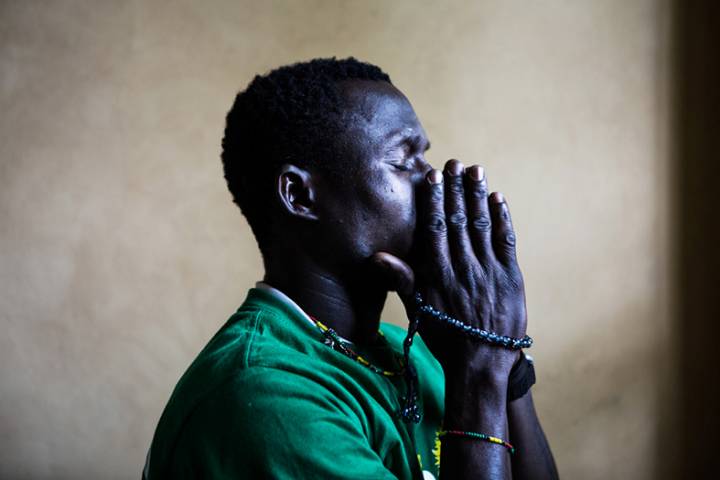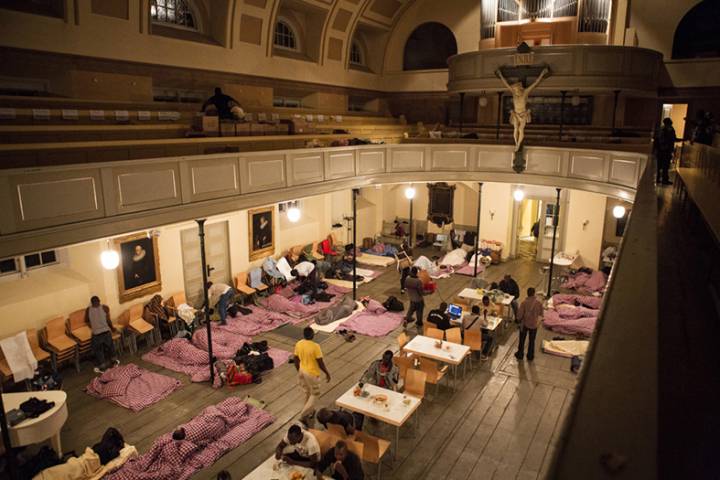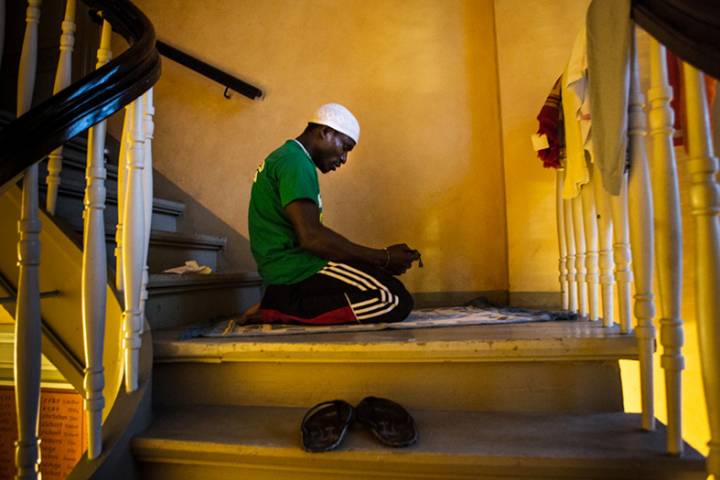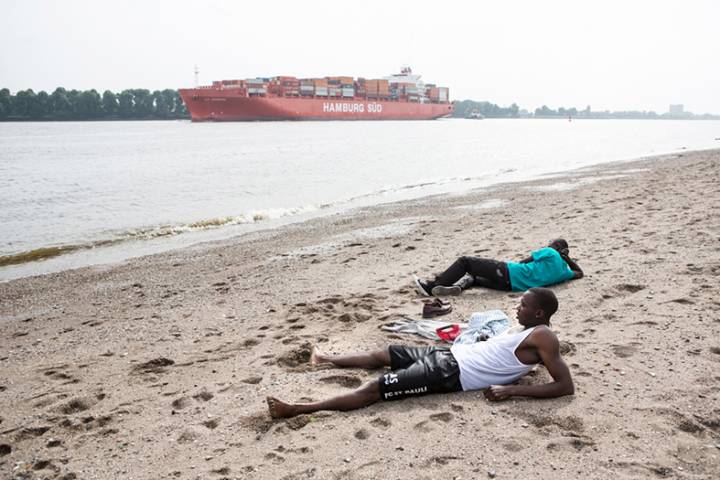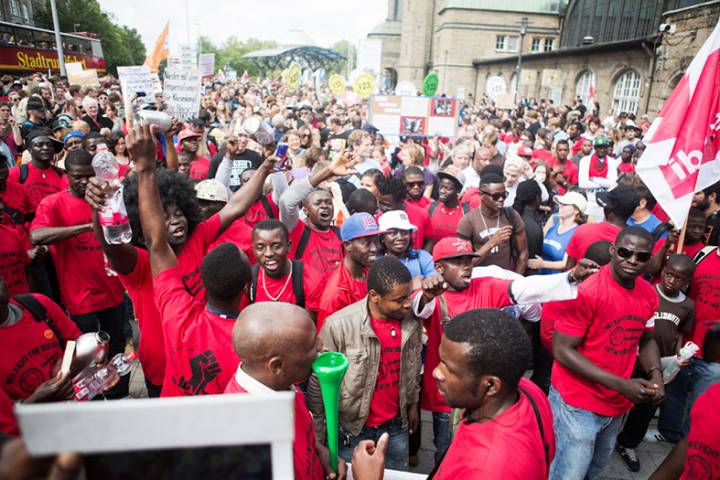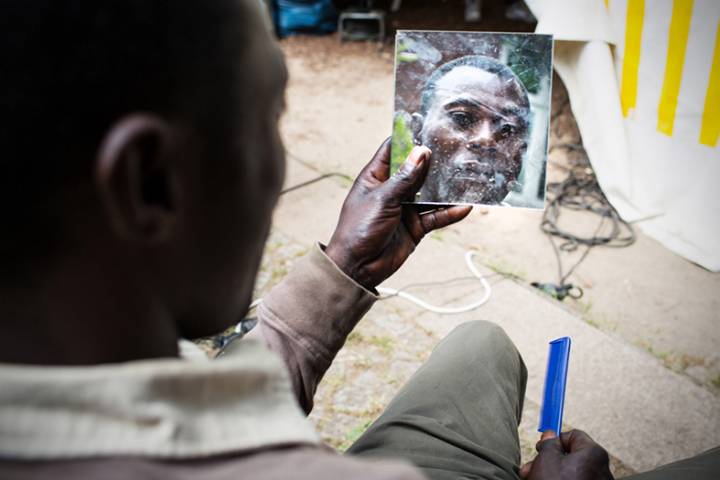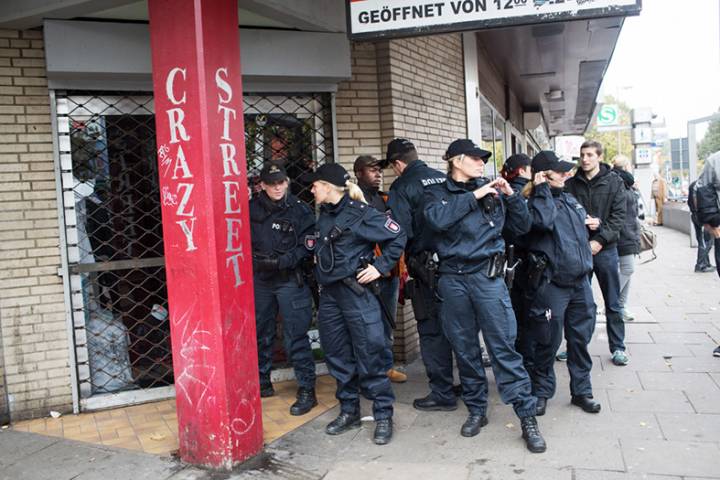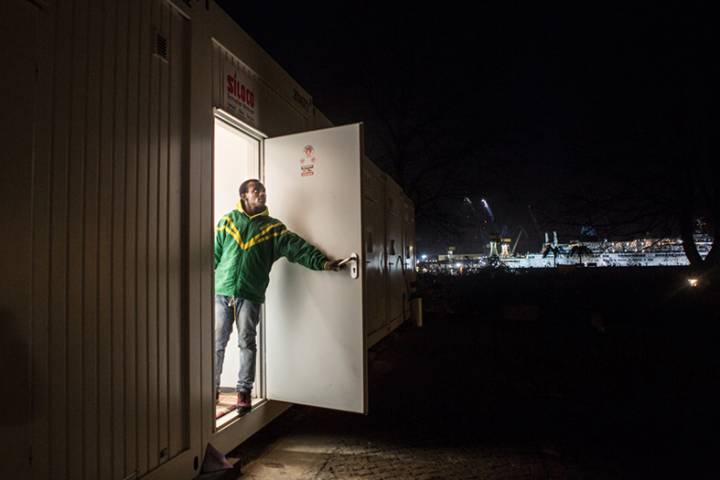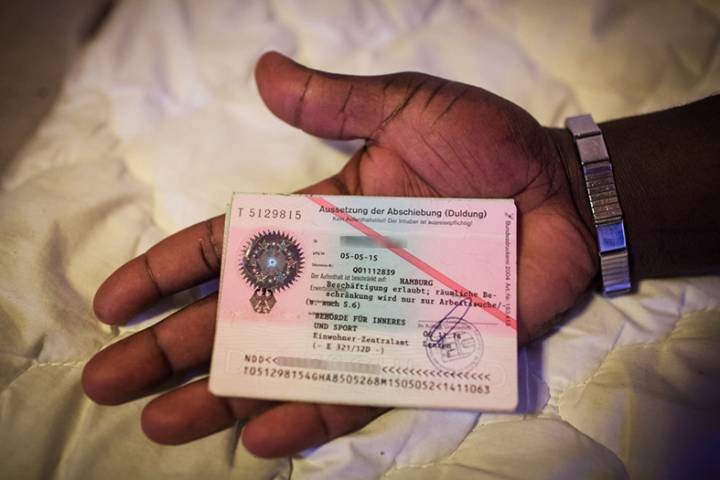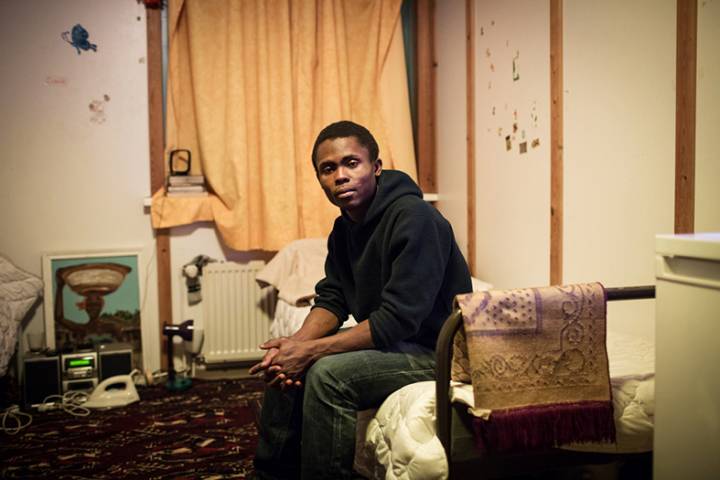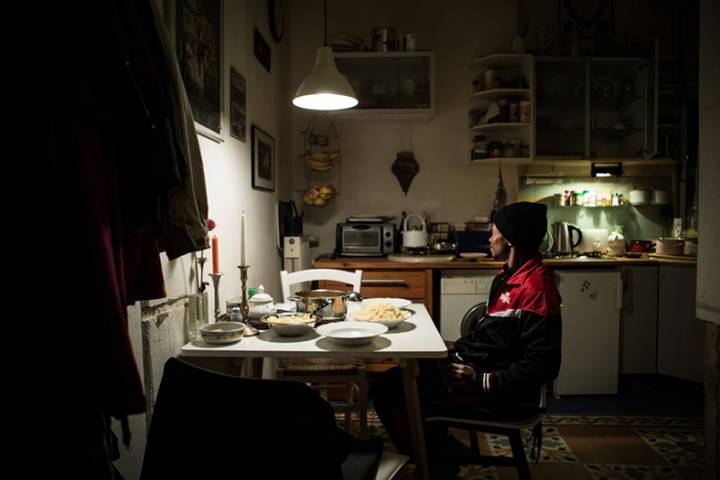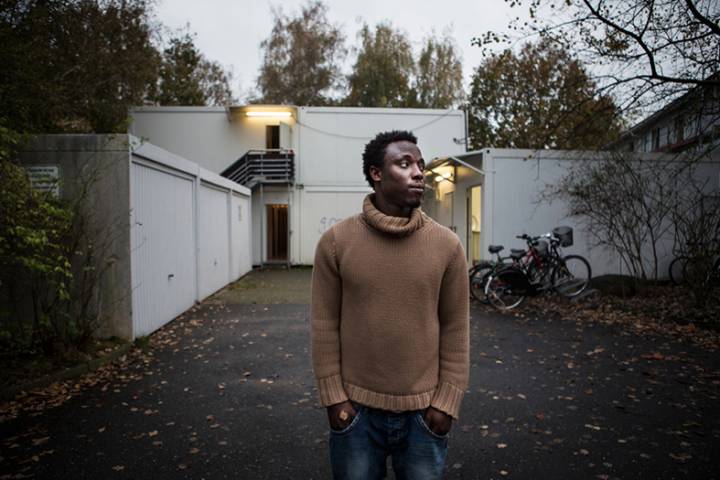A three-month Schengen visa and a few hundred Euros: that’s all the 300 African men had on them when they travelled from Italy to Hamburg in early 2013. They lived on the streets for months, and many ended up in the city’s winter support programme. The federal authorities see no reason to offer humanitarian aid. According to the Dublin II Regulation, Italy is responsible for the refugees, being the first European country they set foot in. It was only when the Evangelical Lutheran Church in Northern Germany announced that it was willing to take the refugees in that the topic became an explosive local political issue. Saint-Paul’s church in Pinnasberg took in around 80 Libyan refugees, a microcosm of different religions and cultures. Muslims and Christians live together peacefully and struggle for the same thing: the right to reside in Germany. There’s a lot of solidarity in this part of the city. But there is a lack of medical care and perspective too. The last refugees left the church’s premises in June 2014. Some of them have entered city-run facilities for the time being. They’ve received ‘Duldung’ status, which grants exceptional leave to remain and rules out deportation. But they are still waiting and hoping to be granted permanent residency. The photo series aims to give these people, who so often appear in the media as no more than abstract figures, a human face. Behind every number there is a real person with their own particular personal history and destiny.

